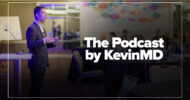This article is sponsored by symplr.
Transforming hospital operations: impacts on clinicians
In the rapidly evolving world of health care, the integration of advanced technology is not just an option, but a necessity. This transformation is not merely about adopting new tools; it’s about fundamentally redefining how hospitals operate and how clinicians provide care. The key lies in leveraging technology to streamline non-clinical operations, thus freeing up more time for patient-focused tasks.
The genesis of a technological revolution in health care
The journey into a more tech-integrated health care system begins with understanding the diverse backgrounds of those leading the charge. Leaders with a rich history in software and technology are now turning their attention to health care, seeing an opportunity to apply their expertise in a field ripe for innovation. The convergence of technological acumen with medical expertise is creating a powerful synergy that is redefining patient care.
A new approach to health care operations
A pioneering vision in the realm of health care technology focuses on simplifying non-clinical health care operations, encompassing areas such as provider data management, workforce management, contract and supply chain management, and compliance, quality, and safety. This approach is not about marginal improvements but a complete overhaul of how health care systems operate, aiming to give health care workers more time to focus on what they do best: caring for patients.
The clinical perspective: the impact of technology on patient care
From a clinical standpoint, the impact of technology on patient care cannot be overstated. Technologies that enhance communication within health care settings, for example, can significantly reduce medical errors and improve patient outcomes. Efficient communication systems ensure that the right health care provider is available at the right time, making a critical difference in emergency situations.
COVID-19: a catalyst for technological adoption
The COVID-19 pandemic has acted as a major catalyst in accelerating the adoption of technology in health care. The crisis highlighted the urgent need for health care systems to evolve rapidly. As a result, there is a newfound eagerness within the sector to adopt technological solutions that can lead to tangible improvements in patient care.
Real-life impact: Enhancing health care delivery
One of the most compelling aspects of technological integration in health care is the tangible impact it has on the ground. For instance, in intensive care settings, efficient communication tools can be lifesaving, especially when managing multiple critical patients simultaneously. Such technologies not only aid in immediate patient care but also play a significant role in reducing the likelihood of medical errors.
Research insights: the potential for reclaimed time
Recent research by symplr indicates that by optimizing technological processes, health care professionals could reclaim a significant portion of their time – as much as 20 percent – which could be redirected towards direct patient care. This revelation underscores the potential of technology to revolutionize health care delivery.
Focusing on health care workers
A unique approach in this technological revolution is the focus on health care workers. By empowering clinicians and administrators with better tools and systems, the entire health care ecosystem, including patients, stands to benefit. This worker-centric approach is a strategic shift from the traditional patient-centric models, yet it indirectly enhances patient care by supporting those who provide it.
Bridging the gap: Aligning technology with clinical needs
A critical challenge in embracing new technology is aligning the perspectives and priorities of IT professionals and clinicians. Collaborative efforts are essential in identifying and implementing the right technological solutions. Addressing real problems like clinician burnout and operational inefficiencies requires a unified approach from both the technological and clinical sides.
Looking ahead: standardization and efficiency in 2024 and beyond
The future of health care technology is likely to be marked by a trend toward system-level standardization. This shift aims to create more efficient and interoperable systems that enable health care professionals to work effectively across various settings. Standardization also addresses the current challenges of resource scarcity, particularly in the face of a global shortage of health care workers.
Embracing the technological leap: advice for the health care sector
For health care institutions still on the fence about embracing new technology, the path forward involves identifying specific challenges and finding the right technological solutions to address them. Committing to these solutions and partnering with the right technology providers is crucial in navigating the complexities of modern health care.
Conclusion: a call to embrace change
As the health care sector stands at a crossroads, the decision to embrace technology is more than a choice—it’s a strategic imperative. Leveraging technology to solve new and existing challenges will not only enhance patient care but also empower health care workers to practice at the top of their license. The future of health care is inextricably linked to technology, and embracing this relationship is key to unlocking a new era of operational efficiency and improved patient outcomes.
BJ Schaknowski is CEO, symplr, and Angel J. Mena is chief medical officer, symplr Clinical Communications.
VISIT SPONSOR → https://www.symplr.com/
SUBSCRIBE TO THE PODCAST → https://kevinmd.com/podcast
RATE AND REVIEW → https://kevinmd.com/rate
FOLLOW ON INSTAGRAM → https://www.instagram.com/kevinphomd
FOLLOW ON TIKTOK → https://www.tiktok.com/@kevinphomd



























